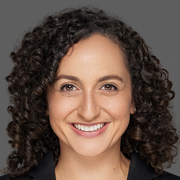
Sara M. Panella, PharmD, BCPS, CPh is the manager of pharmacy ambulatory care, population health and transitions of care (TOC) for Baptist Health South Florida Clinical Pharmacy Enterprise. She obtained her Doctor of Pharmacy from the Ernest Mario School of Pharmacy (EMSOP), Rutgers, The State University of New Jersey. After graduation, she completed a PGY1 pharmacy practice residency at Yale-New Haven Hospital followed by a PGY2 residency in drug information at Robert Wood Johnson University Hospital/EMSOP. She started her career in TOC at University of Maryland Medical Center in Baltimore, MD and has since developed TOC programs there as well as at Memorial Regional Hospital in Hollywood, FL. Panella has also held academic positions at EMSOP as a clinical assistant professor and at Nova Southeastern University as an assistant professor and was previously a residency program director for a PGY2 residency in transitions of care. Panella is currently working with the National Transitions of Care Coalition as the chair for the pharmacy committee and is a sitting member on their Board of Directors.
Panella has been actively involved with Florida Society of Health-System Pharmacists (FSHP), starting up and chairing an Ad Hoc Clinical Forum on Ambulatory Care from 2019 – 2021. She was the co-creator of the inaugural FSHP Ambulatory Care Fall Symposium in 2022. She has represented the state of Florida as a ASHP House of Delegate member over the last two years. Currently, she is on of the Board of Directors for FSHP.
I am highly motivated, creative, and always seeking advancement for the practice of pharmacy. As both a practicing pharmacist and manager in ambulatory care, including transitions of care and population health, I have always strived to push for the recognition and standardization of the pharmacy workforce amongst our interdisciplinary peers. This is evident by the creation of the National Transitions of Care Coalition Pharmacist Committee that I helped to establish with their leadership. I plan to use my platform and my position to continue to advocate for the advancement and growth of pharmacy amongst the public and other healthcare providers, including, but not limited to reimbursement models for our services. As pharmacy ambulatory care continues to be one of the fastest growing areas of pharmacy, training in this area becomes more imperative to ensure new practitioners are well versed in the various areas they may work, including transitions of care and population health. It would be an honor to hold this position to use my skillset to help further develop the presence of non-hospital-based pharmacists working within health-care systems and other varying areas of growth for clinical ambulatory pharmacists.
